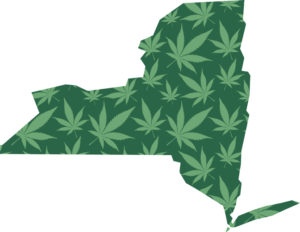On the heels of recent legalization and/or implementation efforts in states like Virginia, New Jersey, and Arizona, New York is now positioned to become the 17th state in the country to legalize adult use cannabis.

Assembly Majority Leader Crystal Peoples-Stokes, D-Buffalo, the sponsor of A.B. 1248, the Marijuana Regulation and Taxation Act ("MRTA"), has indicated that the New York Legislature will vote on a cannabis legalization bill sometime next week. While the current text of the bill has yet to be made public - due in large part to the fact that the final details continue to be ironed out - Assemblywoman Peoples-Stokes has indicated that the goal is to provide a public draft as soon as possible, and take up the bill next week in the New York Assembly and Senate prior to the state budget being presented on April 1.
The bill would create an overarching framework for legalization as follows:
- Creation of the Office of Cannabis Management.
- The 5 member board would include three members appointed by the Governor, one member appointed by the State Assembly, and one member appointed by the State Senate.
- Sales would not commence for at least one year following enactment.
- Expansion of rights for existing operational medical marijuana
registered organizations, including:
- Doubling their current number of potential dispensaries from four to eight.
- Dedicating two of these additional dispensaries to underserved areas.
- Co-locating medical and adult use permits at three of their presently operational medical dispensaries.
- Adult-use cannabis taxed at 13% - with 9% dedicated to the state and the remaining 4% to localities.
- Wholesale tax predicated on potency - up to $0.03 per milligram of THC.
- New York's existing medical marijuana registered organizations would be permitted to co-locate adult-use and medical permits at up to three adult use stores (with a framework for opening and operating additional adult-use dispensaries subject to certain specified conditions).
Importantly, the opportunities envisioned under the MRTA are not reserved solely for the largest multi-state operators. For instance, the MRTA largely reflects a desire by New York to move away from the largest and most capital intensive vertically integrated licenses, create a new class of licenses known as microbusinesses, and prioritize social and economic equity, minority and women-owned businesses, disadvantaged farmers, and service-disabled veterans, including through, but not limited to, certain incubator based programs.
While New York was once the marijuana arrest capital of the world, it is now on the precipice of creating a marketplace that could yield up to $350 million in annual tax revenue.
The content of this article is intended to provide a general guide to the subject matter. Specialist advice should be sought about your specific circumstances.

